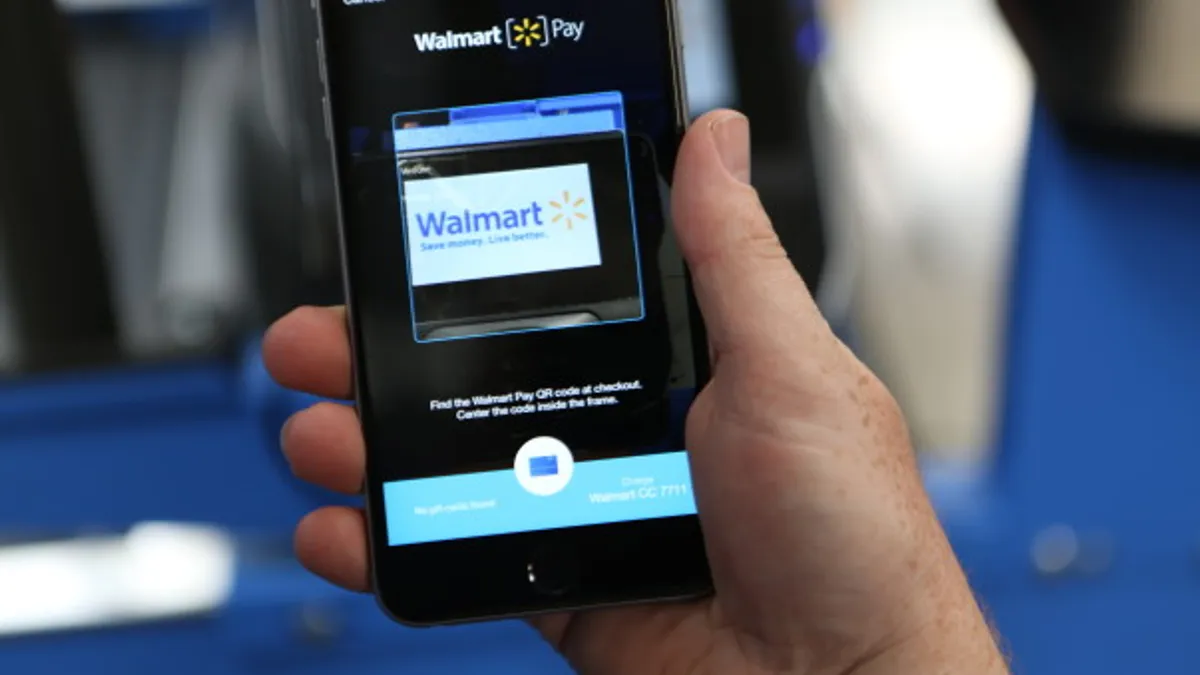Brief:
- Walmart, the world’s biggest retailer with 11,723 stores worldwide, is close to overtaking Apple Pay in usage for mobile payments in the U.S., according to researcher Crone Consulting. Walmart Pay is estimated to have more active U.S. users, which make at least two transactions a month, by the end of 2018, the researcher told Bloomberg News.
- Walmart Pay is available in 4,774 U.S. stores and enrolls tens of thousands of new users a day, said Daniel Eckert, senior vice president of Walmart Services. Two-thirds of the customers who try Walmart Pay use it a second time within 21 days, he said.
- The chain is one of the biggest retailers that doesn't accept Apple Pay, which requires special equipment at checkout. Walmart introduced its mobile payment service in December 2015, more than a year after Apple’s debuted. The two companies have discussed the inclusion of Apple Pay into the retailer's app, but those talks ended in March 2016 due to the difficulty in combining the technologies, an unnamed source told Bloomberg.
Insight:
The growth of Walmart Pay shows how the retailer has expanded its clout into services the same way it has with manufacturers. It's also worrisome for Apple Pay that it’s not available in a retailer that is estimated to control 14.5% of the U.S. food and grocery market, according to estimates by GlobalData Retail cited by CNBC.
About 5.1% of Walmart shoppers used its payment app in June, compared with 5.5% of iPhone users at stores that accept Apple Pay, according to a survey by Pymnts.com and InfoScout cited by Bloomberg. One key factor that's likely helped to boost adoption of Walmart Pay among shoppers is that the mobile pay platform works with both iOS and Android phones, while Apple Pay is limited to iPhones. While iPhone users are known for being early adopters of new tech like mobile payments, as smartphone-based payments become more widely accepted, reaching Android's large user base will be key.
The $49 billion mobile payment market has faced some difficulty gaining traction among consumers, in part due to security concerns and the relative ease of using plastic cards to pay for items. That's where Walmart has a particular advantage over smartphone makers like Apple and Samsung. The retailer has frequent interactions with its customers and has trained its employees to demonstrate the tool and answer questions in person, which could enhance shoppers' experience with the mobile pay system.
But Apple isn't standing still. The company last month said retailers like Safeway will soon roll out Apple Pay. Starbucks, a pioneer in retail mobile payment apps, also uses Apple Pay. Active users of Apple Pay have more than doubled in the past year and annual transactions have risen fourfold, Apple said in an earnings call last week.














